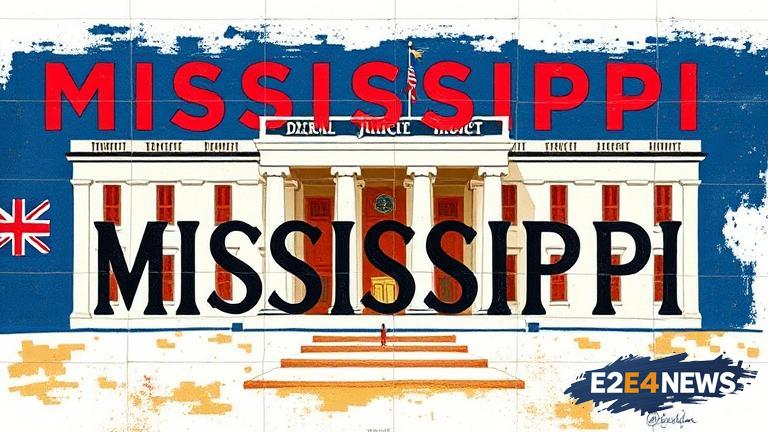In a significant ruling, a federal judge has blocked Mississippi’s ban on diversity, equity, and inclusion (DEI) initiatives, which was set to take effect on July 1. The ban, signed into law by Governor Tate Reeves in April, prohibited public universities and colleges from promoting DEI initiatives, sparking widespread criticism from educators, students, and civil rights groups. The lawsuit, filed by the Mississippi NAACP and the American Civil Liberties Union (ACLU), argued that the ban was unconstitutional and would have a chilling effect on free speech and academic freedom. The judge’s ruling found that the ban was likely to cause irreparable harm to the plaintiffs and that it was necessary to block the law to prevent harm to the state’s public universities and colleges. The ruling is a major victory for advocates of diversity, equity, and inclusion, who argue that these initiatives are essential for creating a welcoming and inclusive environment for students of all backgrounds. The ban was widely seen as an attack on critical race theory and other diversity initiatives, which have become a lightning rod for controversy in recent years. Proponents of the ban argued that it was necessary to prevent the promotion of ‘woke’ ideologies and to protect students from being forced to adopt certain viewpoints. However, opponents argued that the ban was a thinly veiled attempt to suppress discussions of racism and inequality, and that it would have a devastating impact on the state’s already struggling public universities. The judge’s ruling is likely to be appealed, but for now, it provides a significant setback for the ban’s proponents. The case has drawn national attention, with many seeing it as a test of the limits of free speech and academic freedom in the United States. The ruling is also likely to have implications for other states that have considered similar bans, and it may embolden advocates of diversity, equity, and inclusion to push back against efforts to restrict these initiatives. As the case moves forward, it is likely to remain a major point of contention in the debate over diversity, equity, and inclusion in public universities and colleges. The Mississippi NAACP and the ACLU have hailed the ruling as a major victory, and they have vowed to continue fighting to protect the rights of students and educators to promote diversity, equity, and inclusion. The ruling is also likely to have significant implications for the state’s public universities and colleges, which had been preparing to implement the ban. With the ban now blocked, these institutions will be able to continue promoting diversity, equity, and inclusion initiatives, which are seen as essential for creating a welcoming and inclusive environment for students of all backgrounds. The case has also highlighted the importance of diversity, equity, and inclusion in higher education, and it has sparked a national conversation about the role of these initiatives in promoting academic excellence and social mobility.
Wed. Oct 22nd, 2025
